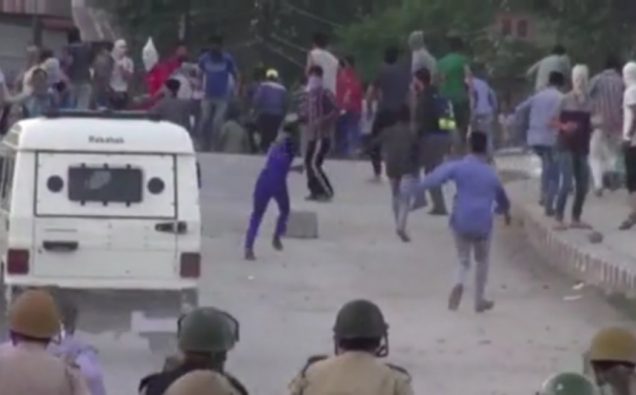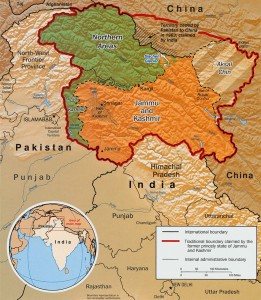
With New Delhi continuing to thwart international observers’ access to Indian-controlled Kashmir, the United Nations has said the deteriorating situation in the disputed territory now critically warrants establishment of an “independent, impartial and international mission.”
The call for proposed commission comes amidst unabated violence in the Indian-held Kashmir where Indian security forces have used pellet guns against civilian protesters. More than 80 people have been killed, over a hundred blinded by deadly pellet guns and thousands more wounded in one of the bloodiest summers the region has witnessed in the last five years.
Demonstrations spread quickly in July through the disputed territory after the killing of Burhan Wani, a militant commander seen as a freedom fighter by the Kashmiris and a separatist by New Delhi.
Prime Minister Narendra Modi has refused to hold talks with Pakistan and despite brutal tactics used by Indian troops to crush the uprising, protests have continued for 66 days. Pakistan and India have fought two full scale wars and several conflicts over Kashmir, a UN-recognized dispute.
In Geneva, UN High Commissioner Zeid Ra’ad Al-Hussein told the Geneva-based Human Rights Council that he received a letter from the government of Pakistan on Sept. 9 formally inviting a team from his office to visit Azad Kashmir but only in tandem with a mission to the Indian side.
“I have yet to receive a formal letter from the government of India. I therefore request here and publicly, from the two governments, access that is unconditional to both sides of the line of control,” he said.
“Two months ago, I requested the agreement of the governments of India and Pakistan to invite teams from my office to visit both sides of the line of control: in other words the India-Administered Jammu and Kashmir and Pakistan-Administered Kashmir,” Zeid Ra’ad Al-Hussein said in remarks delivered on Tuesday at the opening session of the Council.
“We furthermore received conflicting narratives from the two sides as to the cause for the confrontations and the reported large numbers of people killed and wounded. I believe an independent, impartial and international mission is now needed crucially and that it should be given free and complete access to establish an objective assessment of the claims made by the two sides,” he said.
Al-Hussein also said that they continue receiving reports of Indian forces using “force excessively against civilian population under its administration”.
In the Indian-controlled Kashmir, in spite of a lockdown, protests against Indian repression continue with demonstrators calling for a march to the UN office in Srinagar. Tensions have been further heightened due to Eid-ul-Adha, with heavy deployment of Indian troops across the valley even though there is a continuing ban on public assembly this year.
At the Council’s session in Geneva, UN high commissioner for human rights focused on issues of access of the UN to troubled areas and the growing trend of an increasing number of countries to refuse to grant access to the Office of the High Commissioner for Human Rights (OHCHR) and/or other human rights mechanisms to their countries or specific troubled regions.
Governments accuse the OHCHR of “interfering” in the internal affairs of sovereign states when violations of human rights are pointed out to them and his statements referring to these violations are termed “biased”, “irresponsible”, “misleading” or based on “false” premises, Zeid said in a hard-hitting statement.
Citing the Vienna Declaration which states that “the promotion and protection of all human rights is a legitimate concern of the international community”, he argued that human rights is not exclusively a national issue.
In addition to India and Pakistan, the high commissioner referred to Syria, Venezuela, Turkey, Ethiopia, Gambia, Burundi, China, Nepal, the US (for refusing access to Guantanamo Bay), Israel, Iran, North Korea, among other countries for non-cooperation with UN human rights mechanisms.
“Human rights violations will not disappear if a government blocks access to international observers and then invests in a public relations campaign to offset any unwanted publicity. On the contrary, efforts to duck or refuse legitimate scrutiny raise an obvious question: what, precisely, are you hiding from us?” he said.















